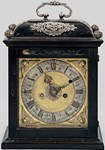The requirement to state that a lot has been ‘guaranteed’ to sell is part of a series of laws known as Local Law 80 and 98 that are being scrapped on June 15 to ease restrictions on businesses and boost post-Covid trade.
Fully backed financial guarantees – as well as third-party guarantees, or irrevocable bids – have been part of the upper echelons of the auction business for decades. However, they have often been accused of blurring the lines between auctioneer and dealer while over-inflating market values.
Guarantee symbols
Typically indicated in a catalogue by small symbols next to the lot number, irrevocable bids have helped auction houses to secure major consignments while passing on the risk.
The major auction houses are currently reviewing the law change and are yet to confirm if the guarantee symbols will remain or be removed.
A Sotheby’s spokesman said: “As a global company with numerous auction locations around the world, we hold ourselves to the highest business standards, and our policies are consistent and designed to operate fairly on a global basis and in the best interests of our clients.”
The law change for auction houses was made under rules governing ‘amusement arcades, amusement operators, gaming cafés, as well as auction houses and auctioneers’.
The Department of Consumer and Worker Protection it said it will “remove all rules relating to auctioneers and auction houses. These businesses will be able to operate without a licence.”
‘Eroding trust’
Many art market experts believe the changes could be damaging for the art market.
Anne-Laure Alléhaut, from law firm Patterson Belknap Webb & Tyler, said: “The repeal of the auction regulations as a whole do not bring relief to the industry; if anything, it undermines it, eroding trust and confidence of buyers and sellers in the auction process.
“Auction houses’ regulations were very detailed and tailored to the auction industry, so with their repeal there are no specific requirements that the auction discloses the auction houses’ financial interest or that the consignor may be bidding in the room, for example.
“A great many of the disclosures in the catalogue and at the start of the auction directly stem from the disclosure requirements that were included in the regulations.
“It is not to say that there are no regulations – there are many, such as the consumer regulations – but they are not as explicit as the auction regulations so it will take time and case law to determine the extent to which they apply.”
The law change applies to New York City (New York’s five boroughs and not the wider New York state).
However, Gene Shapiro, president of New York state auction house Shapiro, believes the rule change will not adversely impact the auction sector. He said: “Our auction house has always abided by the rules of the Department of Consumer Affairs, simply because it is the right thing to do. We pride ourselves on operating ethically and transparently, and we will continue to do so even without codified regulations.
“In this type of business, bad actors are identified very quickly, and will not last long.
“With regards to the licensing requirements, New York is in dire need of a business friendly climate with less red tape, to stem the exodus of businesses from the city, and I believe that this is a positive development as well.”











